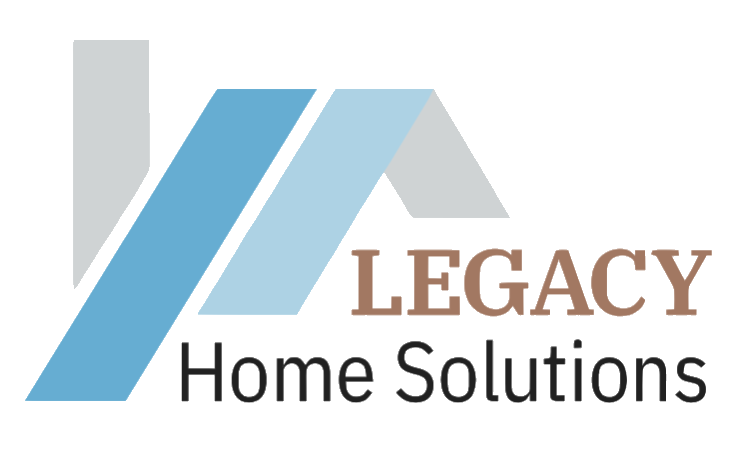
Understanding the Foreclosure Process in Ohio Real Estate
Knowing how foreclosure processes work in Ohio is crucial in selling a foreclosed property profitably. The initial step in the mortgage default judicial foreclosure process starts with the lender suing the borrower.
This means every single foreclosure in Ohio is dealt with in court. This allows the borrower to contest the foreclosure, negotiate a loan modification, or perform a short sale. Once the lender has obtained a court judgment granting them the mortgage, the property is put up for sheriff’s sale, wherein it is auctioned for the value of the mortgage debt outstanding against it.
The timeline and this legal procedure benefit sellers greatly. Knowing about deficiency judgments and redemption periods can change one’s approach to selling homes in foreclosure.
Sellers learn these processes and sharpen their marketing campaigns. They also prepare for buyer inquiries and interact more proficiently with distressed property brokers in Ohio’s unique real estate market. Contact us today for expert support and guidance throughout this process.
Can You Sell Your House If It Is in Foreclosure?
Yes, you can sell your house for cash in Cleveland and other cities in Ohio, even if it is in foreclosure, and doing so can be a viable strategy to avoid the negative consequences of a foreclosure on your credit report. In Ohio, the foreclosure process begins when a homeowner falls behind on mortgage payments and the lender initiates legal proceedings.
Homeowners delaying payment of mortgage installments are within reach of easing some financial burdens by selling assets before foreclosure. In Ohio, selling a foreclosed home is tricky, but proactively selling it at or below market price to real estate professionals specializing in quick sales of distressed homes guarantees a fast sale.
Competitive pricing and effective marketing will enable homeowners looking to sell quickly to attract potential buyers. Involving other experts who understand Ohio’s complex laws relating to foreclosure guarantees compliance design requirements will ensure everything is followed correctly.
Selling before the auction date allows homeowners to pay off their mortgage balance and potentially retain any remaining equity. As such, even while the property is in foreclosure, selling your house is usually more convenient than being subject to protracted foreclosure processes that could financially cripple you long after the fact.
Strategies for Selling a Foreclosed Home in Ohio
Selling a foreclosed home in Ohio requires strategic planning and understanding the local real estate market. In Ohio, an auction will succeed when state requirements concerning formalities are observed through thorough groundwork.
A skilled real estate professional who specializes in foreclosures and has intricate marketing skills serves as valuable assistance in Ohio. With the correct pricing, foreclosed properties appeal to buyers, as they need to attract attention quickly.
Demonstrating any modifications to the property increases its appeal, and staging the property allows prospective buyers to visualize themselves living there. Social media and online listings broaden exposure and accessibility to buyers beyond Ohio and even out of state.
Often, foreclosure buyers possess extremely sensitive motivations regarding their purchases, but being flexible yet determined concerning pricing strategies allows for more sales and quicker deals to be negotiated.
Preparing Your Ohio Home for Sale During Foreclosure
While Ohio has its challenges with foreclosures, planning appropriately and executing the right strategies can garner attention. Start reading the property by tidying up both inside and outside.
Corrective and maintenance actions should also be taken, as even minor problems could be an instant deal breaker for buyers. Landscaping floral displays, mowing the grass, trimming the bushes, and other such activities beautify and enhance the curb appeal of a business property.
A fresh coat of neutral paint can make rooms appear brighter and more spacious. Staging the home with tasteful furnishings can help buyers envision living there while highlighting key features of the property.
Ensure all systems, such as plumbing and electrical, are in working order to avoid inspection complications. It’s crucial to understand Ohio’s real estate market trends and price your foreclosed home competitively; consult a local real estate professional familiar with foreclosure sales in Ohio for guidance on setting an attractive listing price that aligns with current market conditions.
Focusing on these preparations increases the likelihood of attracting serious buyers quickly despite the challenges posed by foreclosure. Legacy Home Solutions, LLC can guide you through each step to ensure a smoother and more successful sales process.
Legal Considerations When Selling a Foreclosed House in Ohio

When selling a foreclosed home in Ohio, it is crucial to understand the legal considerations that can impact the transaction. Ohio’s foreclosure laws are distinct and involve specific procedures that must be followed meticulously.
One of the primary legal steps is ensuring that the foreclosure process was conducted lawfully and all proper notices were given to previous homeowners. Sellers must have clear title ownership, which means resolving any liens or encumbrances on the property before listing it for sale.
Additionally, understanding Ohio’s disclosure requirements is essential; sellers must provide potential buyers with a comprehensive disclosure form detailing any known issues with the property. Real estate experts and sellers should also be aware of anti-deficiency statutes in Ohio, which could affect financial liabilities post-sale.
Engaging a real estate attorney familiar with Ohio foreclosure laws can help navigate these complexities, ensuring compliance and avoiding potential legal pitfalls during the sale of a foreclosed home.
Key Steps to Successfully Market a Foreclosed Property in Ohio
Successfully marketing a foreclosed home in Ohio requires strategic planning and execution to attract potential buyers. First, understanding the local real estate market is crucial; this involves researching recent sales of similar properties, assessing current market trends, and setting a competitive price that reflects the property’s condition and location.
Enhancing the property’s curb appeal through minor repairs and landscaping can significantly improve first impressions. High-quality photographs and detailed descriptions are essential for online listings, as they are often the first point of contact for prospective buyers.
Utilizing multiple advertising channels, including real estate websites, social media platforms, and traditional methods like open houses or flyers, can broaden the reach. Partnering with an experienced real estate professional specializing in foreclosures can provide valuable insights and negotiation skills to facilitate a smooth transaction.
Engaging in targeted marketing strategies, highlighting the property’s unique selling points or potential for investment, can further differentiate it from other listings in Ohio’s competitive foreclosure market. Also, selling your Ohio home with water damage requires a similar approach to attract the right buyers and emphasize its value despite condition issues.
Essential Repairs and Renovations for Selling a Foreclosed House
When preparing a foreclosed home in Ohio for sale, addressing essential repairs and renovations can significantly enhance its market appeal and value. Start by focusing on critical structural and safety issues, such as fixing roof leaks, repairing damaged foundations, and ensuring all electrical and plumbing systems are up to code.
Curb appeal plays a crucial role, so consider repainting the exterior, replacing broken windows or doors, and tidying up the landscaping to create a positive first impression. Inside the house, prioritize updating outdated kitchens and bathrooms with modern fixtures and finishes, as these rooms often influence buyer decisions.
Replacing worn-out flooring or carpets with durable materials can also make the space more inviting. It’s essential to depersonalize spaces by applying neutral paint colors that allow potential buyers to envision their style.
Addressing mold or pest infestations is vital for health reasons and to reassure cash home buyers in Brooklyn and surrounding cities in Ohio about the home’s condition, especially if you need to sell a house with mold. These strategic improvements attract more interest and potentially increase the home’s selling price in Ohio’s competitive real estate market.
Pricing Strategies for Foreclosures: Maximizing Value in Ohio’s Market
Selling a foreclosed home in Ohio requires clever pricing tactics. Here are key strategies to help you maximize value and attract serious buyers:
- Understand Ohio’s Market Dynamics
– Gain insight into local real estate trends to price your property competitively and stay aligned with buyer expectations in your region. - Conduct a Comparative Market Analysis (CMA)
– Use a CMA to evaluate recently sold foreclosed homes in the area. This helps determine an appropriate price based on similar property values. - Avoid Overpricing or Underpricing
– Overpricing can scare off buyers, while underpricing may lead to lost profit. Striking the right balance is essential to generate interest and offers. - Set a Price Reflective of Property Condition
– When determining your asking price, consider the home’s current state, including any damage or deferred maintenance. - Leverage Local Real Estate Expertise
– Work with agents who specialize in Ohio foreclosure sales. Their knowledge of local market fluctuations can help refine your pricing strategy. - Tailor Strategies to Neighborhood Trends
– Adjust your price point based on the specific city or neighborhood, as demand for foreclosures can vary significantly across Ohio. - Consider Repairs or Upgrades Before Listing
-Minor improvements or necessary repairs can boost the property’s appeal and justify a higher asking price, especially if buyers see move-in potential. - Leave Room for Negotiation
– Build flexibility into your pricing to accommodate negotiations without compromising your minimum acceptable value.
Tax Implications of Selling a House Undergoing Foreclosure in Ohio

When selling a foreclosed home in Ohio, it’s crucial to understand the tax implications involved. Foreclosure can lead to significant financial consequences, particularly regarding potential tax liabilities.
In Ohio, when a lender forgives a portion of the mortgage debt through foreclosure, the IRS may consider this forgiven debt as taxable income, termed “cancellation of debt” income. However, homeowners might be exempt from this additional tax burden under certain conditions, such as insolvency or qualifying under the Mortgage Forgiveness Debt Relief Act (if applicable).
Sellers must consult with a tax professional to navigate these complexities and explore any possible exclusions or deductions that could minimize their tax exposure. Additionally, understanding how capital gains taxes apply, mainly if the property was not used as a primary residence for at least two out of the last five years before foreclosure, is vital.
Staying informed about state-specific regulations and federal tax laws will help ensure compliance and prevent unexpected financial setbacks during a challenging process.
How to Attract Buyers to Your Foreclosure Listing in Ohio
To attract buyers to your foreclosure listing in Ohio, it’s crucial to present the property in its best light and strategically market it to reach potential buyers effectively. Start by ensuring the property is clean and well-maintained, as curb appeal can significantly impact first impressions.
Consider making minor repairs or improvements that could enhance the home’s appearance without breaking the bank. High-quality photographs are essential for online listings, so hire a professional photographer if necessary.
Highlight unique features of the home and any potential for investment opportunities that might appeal to savvy buyers looking for foreclosed properties in Ohio’s real estate market. Utilize multiple platforms, including popular real estate websites, social media channels, and local agents with experience selling foreclosures.
Virtual tours can also help engage remote buyers who cannot visit in person immediately. Researching similar properties in the area will further entice prospective purchasers, and pricing your foreclosure competitively will help.
Engaging with local investors or hosting open houses can create a buzz around your listing and draw more interest from serious buyers seeking investment opportunities in Ohio’s foreclosure market.
Closing the Deal: Managing Offers on an Ohio Foreclosure Sale
When closing the deal on an Ohio foreclosure sale, effectively managing offers is crucial to securing a favorable outcome. Begin by thoroughly reviewing each offer with a keen eye on the purchase price and contingencies that could impact the transaction’s feasibility.
It’s essential to compare offers based on financial value, the buyer’s ability to close quickly, and any proposed inspections or repairs. Working closely with a real estate professional experienced in Ohio foreclosure sales can provide valuable insights into market conditions and buyer behavior.
Due diligence involves verifying buyers’ pre-approval letters from reputable lenders to ensure they are financially qualified. Negotiation skills are pivotal in addressing counteroffers, where understanding the motivations behind each bid can lead to more strategic decisions.
Maintaining open communication channels with potential buyers helps facilitate smoother negotiations and avoids misunderstandings that could derail the sale process. Consider Ohio’s legal requirements for foreclosure transactions, as compliance is essential for a legally binding agreement.
By staying organized and proactive, sellers can navigate multiple offers efficiently, ultimately achieving their goal of selling their foreclosed property at an optimal price point.
Understanding Buyer Financing Options for Purchasing an Ohio Foreclosure
When selling a foreclosed home in Ohio, it is crucial to understand the various buyer financing options available to potential purchasers. One common avenue is conventional financing, which often requires buyers to have good credit and a substantial down payment.
However, federal programs like FHA loans can be attractive for those with limited financial resources, as they offer lower down payments and more lenient credit requirements. VA loans are another option for veterans and active military personnel, providing favorable terms with no down payment in many cases.
For those interested in investing or purchasing properties at a lower cost, hard money loans might be an appealing choice due to their fast approval process and flexible criteria. However, these typically come with higher interest rates. Additionally, some buyers may consider utilizing renovation loans like the FHA 203(k), which allow them to finance both the purchase and necessary repairs of the property.
Understanding these financing options helps sellers position their foreclosure listings effectively and guides potential buyers through the complexities of purchasing foreclosed homes in Ohio’s real estate market.
The Role of Auctions in Selling Foreclosed Properties in Ohio
Auctions play a pivotal role in selling foreclosed properties in Ohio. They offer a streamlined and efficient method for banks and homeowners to liquidate assets quickly. In Ohio, foreclosure auctions are typically conducted by the county sheriff’s office, providing a public venue where buyers can bid on foreclosed homes.
This process attracts real estate investors and potential homeowners looking for bargains, as auctioned properties often sell below market value. Bidders must register and provide proof of funds or financing pre-approval to participate.
The competitive nature of auctions helps ensure that foreclosed homes are sold at fair prices determined by market demand. Moreover, these auctions expedite the sale process, reducing holding costs for lenders and helping to stabilize local real estate markets by removing distressed properties from inventory.
Understanding the nuances of Ohio’s auction laws for sellers and financial institutions is crucial to maximizing returns while ensuring compliance with state regulations governing foreclosure sales.
Avoiding Common Pitfalls When Selling a Bank-owned Property

Knowing the common pitfalls that can complicate the process when selling a bank-owned property in Ohio is crucial. One major issue is not understanding the local real estate market, which can lead to pricing the foreclosed home either too high or too low.
Conducting a thorough market analysis is essential for setting a competitive price. Additionally, sellers often overlook necessary repairs and improvements that could enhance the property’s appeal and increase its value.
Addressing any maintenance issues before listing the house is essential to ensure it meets buyer expectations and passes inspections. Navigating legal requirements is another potential pitfall; sellers must ensure all paperwork complies with state laws governing foreclosures to avoid delays or legal complications.
Working with an experienced real estate professional specializing in bank-owned properties can provide invaluable guidance through this complex process. Sellers who are proactive about these challenges can streamline their efforts and secure a successful sale.
Long-term Financial Planning After Selling a Home Through Short Sale or Auction
After successfully selling a foreclosed home in Ohio through a short sale or auction, it’s crucial to focus on long-term financial planning to ensure future stability. Begin by assessing your current financial situation, considering any remaining debts or obligations from the foreclosure process.
Consider creating a detailed budget that prioritizes savings and reduces unnecessary expenses. It’s wise to consult with a financial advisor who can provide tailored advice on rebuilding your credit score and managing any tax implications arising from the sale.
Exploring investment opportunities, such as retirement accounts or diversified portfolios, can also be beneficial for securing your financial future. Additionally, establishing an emergency fund is essential to buffer against unexpected expenses.
By strategically planning and making informed decisions, you can effectively navigate the post-sale period and work towards achieving long-term financial security.
How Do They Sell Foreclosed Homes?
Selling a foreclosed home in Ohio involves a strategic approach to navigate the complexities of the real estate market. Typically, foreclosed homes are sold through auctions, real estate professionals, or directly by the bank that owns the property.
The process begins with the lender, usually a bank or financial institution, taking possession of the property due to unpaid mortgage payments. Once repossessed, these foreclosed properties are often listed for sale at public auctions where buyers can bid on them.
If the home does not sell at auction, it may be listed with a real estate professional specializing in foreclosure sales to reach potential buyers more effectively. Selling a foreclosed home requires setting an attractive price point that reflects its market value while considering any repair costs that might deter prospective buyers.
Marketing strategies such as online listings and open houses can enhance visibility and attract more interest from serious buyers. Understanding Ohio’s specific foreclosure laws and regulations is crucial for sellers to ensure compliance throughout the selling process.
By employing practical negotiation skills and leveraging local market insights, sellers can increase their chances of closing a successful sale on their foreclosed property in Ohio.
How Long Does It Take to Foreclose on a House in Ohio?
The foreclosure process in Ohio can be lengthy, typically taking several months to complete. Understanding the timeline is crucial for anyone selling a foreclosed home in Ohio.
The process begins with the homeowner missing mortgage payments, leading the lender to issue a notice of default. In Ohio, this legal notification starts the judicial foreclosure process, which means the lender must file a lawsuit in court to obtain permission to foreclose on the property.
This step alone can take three to six months, depending on court schedules and potential delays. Once the court approves, the property is scheduled for a sheriff’s sale auction, which requires public notice and typically takes an additional four to six weeks.
After the auction, there is often a redemption period during which the original homeowner may reclaim their property by paying off debts; however, this period can vary based on specific circumstances and lender policies. Overall, selling a foreclosed home in Ohio requires patience and strategic planning due to these timeframes and legal requirements.
What Is the 120-Day Rule for Foreclosure?
Understanding the 120-day rule for foreclosure in Ohio is crucial when selling a foreclosed home. This regulation is part of the foreclosure process and plays a significant role in managing properties before they hit the market.
The 120-day rule mandates that lenders must wait at least 120 days from the date of a homeowner’s first missed mortgage payment before initiating foreclosure proceedings. This period allows homeowners to negotiate alternatives like loan modifications or short sales, potentially avoiding foreclosure.
Being well-versed in this timeline is essential for sellers looking to effectively manage or sell foreclosed homes in Ohio. By comprehending the intricacies of the 120-day rule, sellers can better strategize their approach to marketing and selling these properties, ensuring compliance with legal requirements while optimizing their sales strategy.
Understanding this rule helps streamline transactions and facilitates smoother negotiations between buyers, sellers, and lenders within Ohio’s real estate market.
Do you need to sell your house? Sell quickly, avoid expensive repairs, or want a hassle-free transaction. Legacy Home Solutions, LLC is here to help. We make fair cash offers, handle all details, and simplify the process. Are you ready to sell or have any questions? Call us at (440) 973-6024 for a no-obligation quote. Get started now!
| FORECLOSING | NON-JUDICIAL FORECLOSURE | CREDITOR | ENTER A JUDGMENT | LAWYER | MORTGAGE AGREEMENT |
| MORTGAGE LENDER | CASH | REAL ESTATE LAWS | INFORMATION | BORROWER | DEBTOR |
| FEES | DEFAULTED | DEFAULTING | BANKRUPTCY | SHERIFF’S OFFICE | LITIGATION |
| CIVIL LAWSUIT | SHERIFF SALE | EVICTION | COMPLAINT | SUMMONS | |
| MEDIATION | TERMS OF USE | REFINANCE | REFINANCING | PRIVACY | LOSS MITIGATION |
| LEGAL ASSISTANCE | LEGAL AID | TRIAL | PHONE | SUMMARY JUDGMENT | REAL ESTATE OWNED |
| REO PROPERTIES | JUDGE | DOCUMENT | DEED | CONTRACTS | CONTRACTUAL RIGHTS |
| RISKS | NOTHING | NONPROFIT | MOTION | MORTGAGE SERVICING | MORTGAGE SERVICERS |
| GRACE PERIOD | FAIR MARKET VALUE | THE LENDER WILL |
